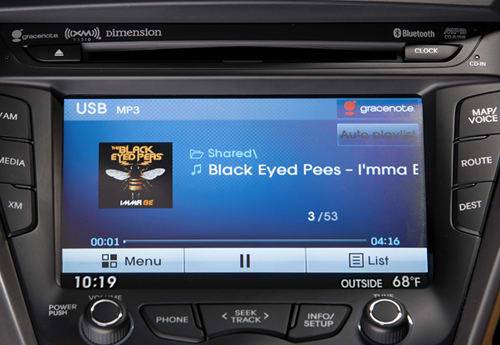Brand Loyalty Declines; Shoppers Put Technology First


Loyalty Down 7 Percentage Points
Research firm GfK Automotive’s Automotive Intentions and Purchases study, a monthly survey dating back to the early 1980s, found 48 percent of respondents in 2011 plan to buy the same brand of car as they currently own. That’s down 7 percentage points over the past decade.
Doug Scott, a senior vice president at GfK, split the responses among various age groups: baby boomers and pre-boomers, Gen X and Gen Y. Unsurprisingly, the last two — roughly ages 15 to 45 — had the lowest loyalty intentions. Low loyalty among the two groups hasn’t changed much in the past decade, Scott said, but their influx into the car-shopping market has driven overall loyalty down. (A decade ago, after all, a big chunk of Gen Y couldn’t drive yet.)
Why the lack of love? Scott says the technology in a car is superseding its brand. He cites another GfK study that found the youngest portion of Gen Y — teenagers and early 20-somethings — placed gadgets ahead of cars among must-have needs. It’s the “first time ever that the car came in second,” Scott says.
How well do today’s cars integrate tech? It depends where you draw the line. Every vehicle of last month’s top 15 sellers, which made up nearly a third of all cars sold, offers USB/iPod integration and Bluetooth phone connectivity. Get to the hottest features, however, and availability ebbs. For the 2012 model year, only 11 of the top 15 offer Bluetooth audio streaming for applications like Pandora internet radio. Just four boast smartphone app platforms, like Chevrolet’s MyLink, Ford’s Sync AppLink and Toyota’s Entune.
Good Tech Will Lead to Loyalty
Ford’s Sync has had Bluetooth streaming audio since 2007, well before most others adopted it. Such innovation drives Ford’s loyalty rates among Gen Y shoppers much higher than most Detroit and Japanese rivals, Scott notes. But execution matters, too, he adds. Ford’s initiatives have had their share of bumps, with buggy electronics earning the automaker low marks in J.D. Power & Associates’ Initial Quality Study and, more recently, Consumer Reports’ reliability ratings.
Tech Important for All Ages
Still, the Ford example shows automakers can buck eroding brand loyalty by staying ahead with technology. And it doesn’t just apply to young shoppers. Pealer and Glanville are 54 and 69, respectively.
Glanville says multimedia technology wasn’t a huge factor for him, but his wife, who owns a BMW 3 Series, cares a great deal about it. Pealer’s in-car technology usage, meanwhile, reads more like a tech-savvy teen: XM Satellite Radio, an entire music library on tap through an external storage device, Pandora from his iPhone. His Veloster supports all this, which Pealer rates high.
Brands like Hyundai are on the right track — and might generate more staying power not only with Pealer, but also with two younger generations of car buyers.

Former Assistant Managing Editor-News Kelsey Mays likes quality, reliability, safety and practicality. But he also likes a fair price.
Featured stories




